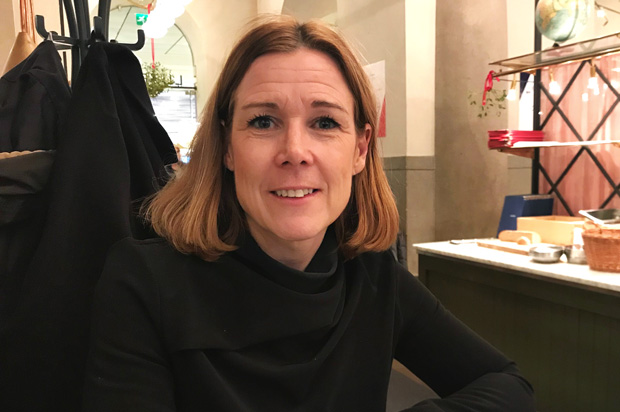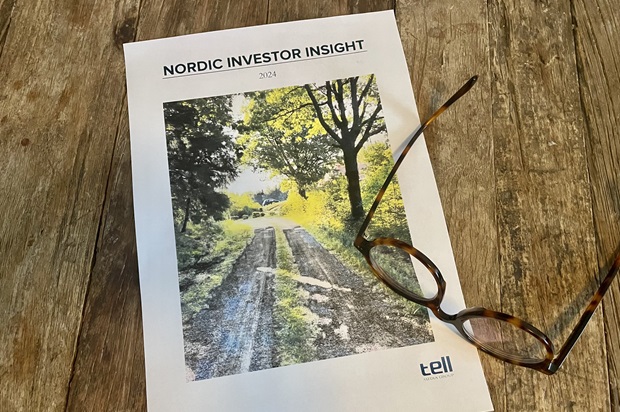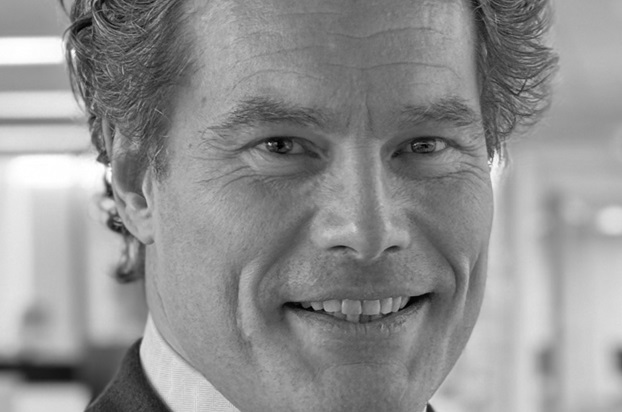
Åsa Wallenberg: “We are bringing our funds to Europe”
The head of funds at Storebrand Asset Management and CEO of SPP Fonder talks about how to keep one step ahead of your peers in the field of sustainability, the company’s international expansion and creating opportunities for others.
With a background as a sales trader, financial services consultant and head of investor relations and corporate communication, Åsa Wallenberg didn’t lack experience when she took on the role as head of funds at Storebrand Asset Management and CEO of SPP Fonder two years ago. The moving force behind the promotion from her previous role as director of communication at SPP, which she held for some five years, was the company’s ex-CEO, Sarah McPhee.
”What Sarah did was to expose me internally. She knew my background and I was included in projects that weren’t related to my formal position as director of communications. It gave me an important network and I was able to showcase my abilities. This is something I bring with me – to create opportunities for others,” says Åsa Wallenberg when we sit down for lunch at Luzette at the Central Station in Stockholm.
She explains that in her current role it is important that she gives equal focus to both Sweden and Norway. ”It’s two very different markets and I learn a lot. The Swedish market is more mature, which in part can be explained by the introduction of PPM as that turned all Swedes into fund investors,” she says. However, for her, Norway has more potential in terms of business growth. ”Norway introduced a savings account similar to the Swedish ISK and we’ve seen an increased interest over the last two years,” she says, explaining that many fund companies in Norway are opening up platforms offering their own, but also external, funds, which is a big difference from the situation in Sweden.
Storebrand has over time expanded to become a multi-brand firm with funds branded Storebrand, SPP, Delphi and more recently also Skagen and Cubera.
”If you look at the offering there are similarities between Storebrand and SPP with both brands having an emphasis on low costs, staying close to index and sustainability. Funds offered by Delphi and Skagen are active,” she describes.
Until recently, Storebrand focused their efforts entirely on Sweden and Norway but that is now changing. “That’s correct. We’ve had some business in Finland through distributors but our focus has been on Sweden and Norway,” Åsa Wallenberg says. The main reason for the company to take the next step in casting its net wider is the increased focus on sustainability among investors.
“If you look at our strategies with a lot of focus on sustainability we’re seeing increased demand also outside Sweden and Norway. We now have an on-going process of bringing our funds to Europe. We’ll be launching a Luxembourg platform during Q2 and we expect to be able to offer a range of Storebrand and Skagen funds in a number of counties in Europe this summer,” Åsa Wallenberg reveals.
The acquisition of Skagen gave Storebrand an access to a network of distributors in Europe who will now also gain access to Storebrand’s funds. “It’s a serious push towards institutional investors as well as distributors. We’ve a lot of things happening right now,” Åsa Wallenberg explains.
Following the acquisition of Skagen, it feels natural to ask whether that was a step to actively consolidate the Nordic asset management industry. However, Åsa Wallenberg denies the idea that there would be a list of potential targets that Storebrand is actively pursuing.
“There is no short-list, and no long-list either. There is absolutely a multi-brand ambition where we aim to have different building blocks. You should never say never, but we’re not actively looking at anything right now,” she explains.
A passionate advocate of sustainable investing and ESG, Åsa Wallenberg circles back to her favourite topic. When asked where we are right now, she says that active ownership is increasingly important.
”We actively decide what to exclude and what to invest in, but investments are rarely black or white. That’s why active ownership and making your voice heard is so important,” she says, and continues:“I think we’re good at sustainable investing, but it’s a never ending process, where learning and continuous development is important. Sustainability is not as unique as it was a few years ago, especially not in Sweden. It’s hardly an ‘USP’. How do we keep our position when everyone says they’re good at integrating ESG factors? I think we must be better than everyone else at describing what, how and why we do it. It’s easier with institutional investors where you can sit down face-to-face. It’s more of a challenge on the retail side,” she says.
Åsa Wallenberg also explains that different asset managers can have the same ambition but different ways of reaching it. “If the goal is to reduce the use of fossil fuels, one way would be to exclude those firms from all portfolios. Another way would be to stay as an investor and actively work with the companies. Regardless of which way we choose, there’ll be more demands [placed] upon us as fund companies to report and describe what we do.”
When asked about the biggest challenges for the industry in general and for fund companies in particular, Åsa Wallenberg says that it is important to put the investor in the middle of that discussion. ”I think everyone agrees that we’ll need to save more rather than less going forward. The challenge for fund companies is therefore to be relevant for investors. It’s about making sure that investors know and understand that we’ve an offering that they need.”



